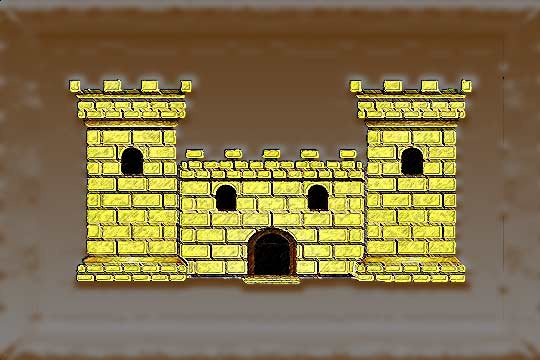Kasteli, Gortyna, Herakleion,Crete
Bonifacio fortress
| Location: |
| On a hill west of the village Tsifout Kasteli, in Monofatsio region of Crete |
| Region > Prefecture: |  |
| Crete Herakleion | |
| Municipality > Town: | |
| City of Gortyna • Kasteli | |
| Altitude: | |
| Elevation ≈ 480 m |
| Time of Construction | Origin | |
| around 1206 to 1212 | GENOAN |
|
| Castle Type | Condition | |
| Castle Ruins |
In Ruins
|
The Bonifacio Castle is located west of the modern village Kastelli of Monifatsio (old name: Tsifout Kastelli), 44km south of Heraklion, on a hill now called Apano Kasteli or Psilo Aloni. The fort is in the records since 1212 and was built by the Genoan pirate Enrico Pescatore.
Pescatore named it Castel Bonifacio, after a castle in Corsica, which was built by Bonifacio Pisano and was captured by the Genoans in 1195.
When the Venetians evicted Pescatore from Crete and Bonifacio fell into their hands, acknowledged its importance, so they repaired it and upgraded to a seat of the 'master of the castle', the Castellan of Bonifacio.
In 1230, Bonifacio was attacked by Cretan rebels during the uprising of Skordilis and Melissinos. The rebels, under the commands of the Byzantines, occupied several forts of Crete, but they failed to occupy Bonifacio as they encountered strong resistance from the Venetian Cataldo Avonale.
The modern province of Monofatsi takes its name after the fort.
The fort was fortified with walls, interrupted by square towers. A tower protected the main gate on the south side and another tower dominated at the highest point of the castle.
Today the fortress is in ruins, with only a few walls still standing. Inside the fort, there is still the paved path leading to its center where you can still see the remains of some buildings, a domed church and a large water tank.
| First entry in Kastrologos: | December 2013 |
Sources
- Website <Cretan Beaches - Castel Bonifacio
- Giannis Christakis, "Historical Fortification Monuments of Crete (330BC-1898)"
- Nikos M.Gigourtakis , Monograph in the History Department of the University of Crete, “Byzantine fortifications in Crete in the 2nd Byzantine period (961-1204)”, Rethymno 2004
- Gerola, Giuseppe,1877-1938, Monumenti Veneti nell' isola di Creta /ricerche e descrizione fatte dal dottor Giuseppe Gerola per incarico del R. Istituto, V.1 Venezia :1905, pp.208
|
|
| Access |
|---|
| Approach to the monument: |
| - |
| Entrance: |
| Access is not easy. The land has been fenced by a shepherd and used as a pasture. The access is possible only after contacting the shepherd. |
















